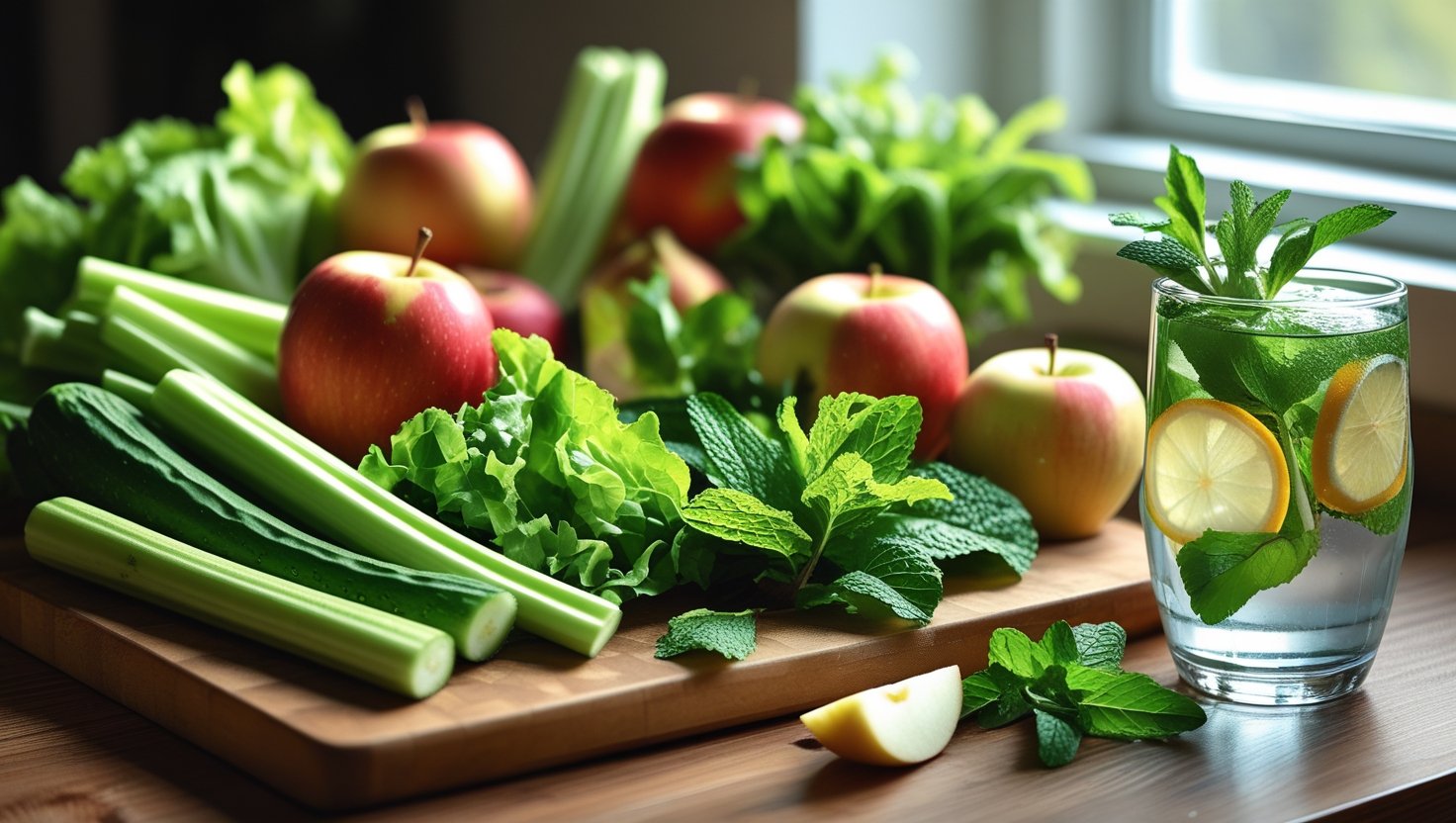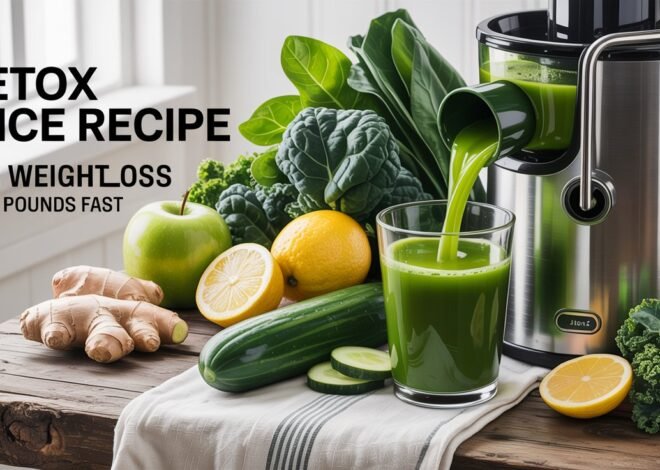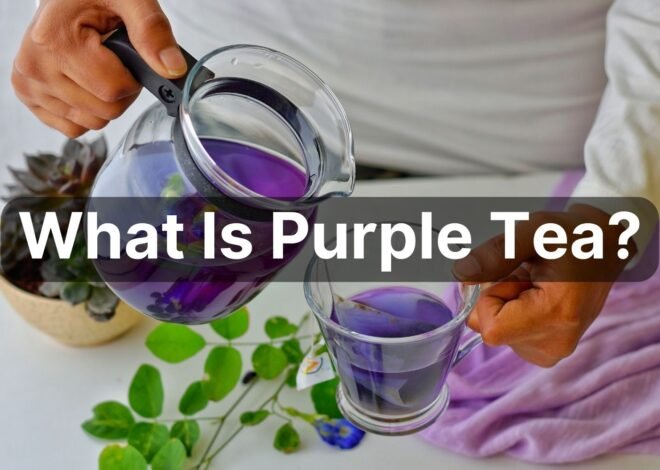Are you on a quest for zero-calorie foods? The truth is, every food has some calories, but some are so low they’re almost negligible.
Dive into the concept of ‘no-calorie’ foods with a touch of realism. These foods offer minimal calories that your body may use more energy to digest than the calories they provide – a phenomenon often referred to as ‘negative calorie’ foods.
Picture crisp veggies and juicy fruits; nature’s treats that are not only low in calories but also packed with nutrients. This exploration will not only debunk myths but also guide you toward smarter food choices that can aid in weight management. Get ready to discover how including certain foods in your diet might help you cut down on calorie intake without sacrificing flavor or nutrition. Let’s embark on this journey to find out which foods make the ‘almost zero’ calorie list and how they can fit into a healthy, balanced diet.
The Myth Of Zero-calorie Foods
The idea of zero-calorie foods is quite popular. Many believe that some foods burn more calories during digestion. They call these negative calorie foods. Celery and lettuce often make this list. But, this is not quite true.
Every food has some calories. Our bodies need calories for energy. Scientists say no food has zero calories. Yet, some foods have very few calories. These can help with weight loss.
It’s important to eat a balanced diet. This means eating foods from all groups. Even those with few calories. They have nutrients our bodies need.

Credit: www.fittr.com
How Calories Are Measured
People often ask about foods with no calories. First, let’s talk about how calories are measured. Scientists use a method called calorimetry. This process burns food to see how much energy it gives off. This energy is what we call calories. So, when you read nutritional labels on food, this is how they figured it out.
But here’s a fun fact. No food is truly zero calories. Even foods that are almost all water still have a tiny bit of energy. That means they have some calories. But, some foods are so low in calories that your body uses more energy to digest them than the calories they provide. People often call these “negative calorie” foods, but remember, they still have some calories.
Common Foods Perceived As ‘no Calorie’
Celery often gets famous as a ‘no calorie’ snack. Many people think eating celery means they burn more calories than they consume. This is because celery is mostly water and fiber. Weight loss fans love it for this reason.
Iceberg lettuce and other leafy greens also have very low calories. They are full of vitamins and minerals. Greens like spinach, kale, and arugula are good examples. Eating them can fill you up without adding many calories to your meal.

Credit: www.reddit.com
The Truth About Negative Calorie Foods
Negative calorie foods may seem like a myth. Yet, some argue they exist. These are foods that burn more calories during digestion than they contain. Celery is often mentioned. It’s low in calories and high in fiber.
Eating these foods might boost metabolism. Chewing, digesting, and absorbing food uses energy. This is called the thermic effect. It’s small but matters over time.
Leafy greens and apples are examples. They take work to break down. This can lead to burning a few extra calories. But no food is truly zero-calorie. All foods have some energy content.
So, can these foods impact your metabolism? Yes, but only a little. They are healthy and low in calories. Good for weight control. Just remember, they are part of a balanced diet. Not a magic solution.
Water: The Real Zero-calorie Essential
Water helps us stay healthy and fit. It’s important for weight loss.
Drinking water makes us feel full. We eat less. This helps in managing weight.
It’s essential in diets. Water has zero calories. It’s good for our body.
Credit: www.quora.com
Artificial Sweeteners And Their Caloric Content
No food has zero calories, but artificial sweeteners can be close. These sweeteners add sweetness without the calories of sugar. Some are called sugar alcohols. Others are known as non-nutritive sweeteners. People often choose them to lose weight.
Many argue about these sweeteners. Are they good for weight loss? Studies show mixed results. Some say they help. Others find no effect. A few think they might even lead to weight gain.
Remember, reading labels is key. Know what’s in your food. Sweeteners are in many products today. They can be in drinks, snacks, and even gum. Not all are calorie-free. Some have a small amount.
Integrating Low-calorie Foods Into A Healthy Diet
Low-calorie foods are part of a healthy diet. They help you control your weight. Think fruits, veggies, and broth-based soups. Watermelon and lettuce are good choices. They fill you up, but don’t add many calories.
Eating various low-calorie foods is smart. It gives your body many nutrients. Try to mix colors on your plate. Greens, reds, and yellows all have different vitamins.
Use spices to add flavor without calories. Cinnamon, garlic, and herbs do the trick. This way, your food tastes great with few calories.
Plan meals with care. A mix of protein, carbs, and fats is important. Choose lean meats and whole grains. They are better for you and have fewer calories.
Psychological Effects Of Chasing Zero-calorie Diets
Many people want to eat food with zero calories. They think it will help them lose weight. This idea can change how they feel about eating. Some feel stressed or sad if they eat more calories. This is not good for their mind.
Always thinking about calories can be risky. It can make someone eat too little. This is not healthy. Our bodies need food to have energy and be strong. Eating too little can make us weak and sick.
Eating should be about being healthy, not just losing weight. Finding a balance is key. Eating different foods is important for health. It helps our body get what it needs.
Frequently Asked Questions
Is There Any Food With 0 Calories?
No food has zero calories, but some such as celery have very low caloric content, often termed “negative calorie” due to the energy expended in digestion.
Which Food Has The Lowest Calories?
Celery is renowned for being the food with the lowest calorie content, offering just 10 calories per 100 grams.
What Are 10 Empty Calorie Foods?
Empty calorie foods typically include sodas, candies, baked goods, fast foods, alcohol, ice cream, and chips.
Can I Lose Weight On 800 Calories A Day?
Yes, consuming only 800 calories a day can lead to weight loss, but it’s essential to do so under medical supervision to ensure it’s safe and nutritious.
Conclusion
Exploring zero-calorie foods can be intriguing, yet a bit misleading. Truly no food is without calories. Still, many are incredibly low and can aid weight management. Celery, leafy greens, and cucumbers are among the best picks. They offer health benefits without weight gain worries.
Remember, balance and variety in your diet are key. Enjoy these low-calorie options as part of a healthy, balanced eating plan. They’re great for snacking or adding volume to meals. Always choose whole, fresh foods to get the most nutrients.
Stay informed, eat smart, and your body will thank you.









